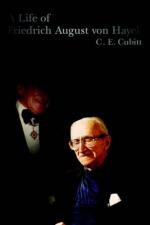|
This section contains 5,871 words (approx. 20 pages at 300 words per page) |

|
SOURCE: “The Austrian Connection: Hayek's Liberalism and the Thought of Carl Menger1,” in Austrian Economics, edited by Wolfgang Grassl and Barry Smith, New York University Press, 1986, pp. 210-24.
In the following essay, Shearmur traces the roots of Hayek's political and economic views in the thought of Austrian social theorist Carl Menger.
1. Introduction
Despite his Austrian origins, Hayek is often regarded as the latter-day spokesman of a largely British liberal tradition. This tradition—ranging through Mandeville, Hume, the Scottish Enlightenment, Burke and bits of J. S. Mill—is, however, in some ways Hayek's own creation. For it was he who grouped these people together and attributed to them a common position, which he then developed in his own writings (Hayek 1967, 1978). This he contrasted with another more rationalistic strand in liberalism, which he denounced as ‘false individualism’, for example in his Individualism: True and False of 1945.2
Hayek's readers in the...
|
This section contains 5,871 words (approx. 20 pages at 300 words per page) |

|


